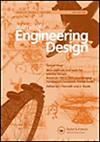Modelling the cost-benefit impact of integrated product modularisation and postponement in the supply chain for pharmaceutical mass customisation
IF 3.4
2区 工程技术
Q1 ENGINEERING, MULTIDISCIPLINARY
引用次数: 0
Abstract
Realisation of pharmaceutical product and production systems capable of delivering product customisation cost-effectively is essential for adding value to patients and society through improved tailoring of therapies to individuals relative to current mass-produced products. To address the continued lack of evidence-based system solutions, this study presents a holistic design framework and a novel computational platform for enabling design explorations of integrated pharmaceutical product and supply chain (SC) reconfiguration. The design and modelling framework developed herein takes an end-to-end SC perspective, adapts the mass customisation strategies of product modularisation and postponement, and demonstrates case study simulations based on real-life therapy and SC archetypes. The cost-effectiveness assessment with the derived integrated systems computational platform confirm that product modularisation drives patient benefit through variety provision and that postponement drives cost reduction in an end-to-end SC. A novel insight is therefore that both product modularisation and postponement, in an integrated manner, are required for maximising cost-effective customisation. Moreover, the computational simulations, founded and modelled on real-life scenarios, provide design requirements for reconfigurable product and SC systems in a pharmaceutical context. In all, these findings are imperative for providing guidance on integrated pharmaceutical product and production systems design and mass customisation/ mass personalisation/mass individualisation realisation.模拟集成产品模块化和制药大规模定制供应链延迟的成本效益影响
相对于目前大规模生产的产品,实现能够经济有效地提供产品定制的药品和生产系统,对于通过改进针对个人的治疗来为患者和社会增加价值至关重要。为了解决持续缺乏循证系统解决方案的问题,本研究提出了一个整体设计框架和一个新的计算平台,用于实现集成药品和供应链(SC)重构的设计探索。本文开发的设计和建模框架采用端到端的SC视角,适应产品模块化和延迟的大规模定制策略,并展示了基于现实治疗和SC原型的案例研究模拟。使用衍生的集成系统计算平台进行的成本效益评估证实,产品模块化通过多样化的供应推动患者受益,而延迟驱动端到端SC的成本降低。因此,一个新的见解是,产品模块化和延迟,以一种集成的方式,是最大化成本效益定制所必需的。此外,基于现实场景建立和建模的计算模拟,为制药环境中的可重构产品和SC系统提供了设计要求。总之,这些发现对于为一体化药品和生产系统设计以及大规模定制/大规模个性化/大规模个性化实现提供指导是必要的。
本文章由计算机程序翻译,如有差异,请以英文原文为准。
求助全文
约1分钟内获得全文
求助全文
来源期刊

Journal of Engineering Design
工程技术-工程:综合
CiteScore
5.00
自引率
33.30%
发文量
18
审稿时长
4.5 months
期刊介绍:
The Journal of Engineering Design is a leading international publication that provides an essential forum for dialogue on important issues across all disciplines and aspects of the design of engineered products and systems. The Journal publishes pioneering, contemporary, best industrial practice as well as authoritative research, studies and review papers on the underlying principles of design, its management, practice, techniques and methodologies, rather than specific domain applications.
We welcome papers that examine the following topics:
Engineering design aesthetics, style and form-
Big data analytics in engineering design-
Collaborative design in engineering-
Engineering concept design-
Creativity and innovation in engineering-
Engineering design architectures-
Design costing in engineering
Design education and pedagogy in engineering-
Engineering design for X, e.g. manufacturability, assembly, environment, sustainability-
Engineering design management-
Design risk and uncertainty in engineering-
Engineering design theory and methodology-
Designing product platforms, modularity and reuse in engineering-
Emotive design, e.g. Kansei engineering-
Ergonomics, styling and the design process-
Evolutionary design activity in engineering (product improvement & refinement)-
Global and distributed engineering design-
Inclusive design and assistive engineering technology-
Engineering industrial design and total design-
Integrated engineering design development-
Knowledge and information management in engineering-
Engineering maintainability, sustainability, safety and standards-
Multi, inter and trans disciplinary engineering design-
New engineering product design and development-
Engineering product introduction process[...]
 求助内容:
求助内容: 应助结果提醒方式:
应助结果提醒方式:


